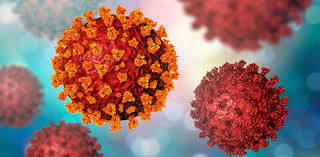January 8, 2025
New research suggests that drinking coffee in the morning may offer better protection for the heart than consuming it throughout the day. According to a study published in the European Heart Journal, people who enjoy their coffee before noon experience a lower risk of dying from cardiovascular disease and a lower overall mortality rate compared to those who drink coffee throughout the day.
The study, led by Dr. Lu Qi, a professor at Tulane University’s Celia Scott Weatherhead School of Public Health, New Orleans, explored the impact of the timing of coffee consumption on health outcomes. Dr. Qi noted that while previous research has shown that coffee consumption doesn’t raise the risk of cardiovascular disease and may even reduce the risk of certain chronic conditions like type 2 diabetes, the timing of consumption had not been thoroughly examined until now.
The study analyzed data from 40,725 adults who participated in the U.S. National Health and Nutrition Examination Survey (NHANES) from 1999 to 2018. Participants were surveyed about their dietary habits, including when and how much coffee they consumed, and this information was cross-referenced with death records over a span of 9-10 years.
Findings revealed that 36% of participants drank coffee only in the morning, 16% consumed it throughout the day, and 48% did not drink coffee at all. Compared to non-coffee drinkers, morning coffee drinkers had a 16% lower risk of dying from any cause and a 31% lower risk of dying from cardiovascular disease. Conversely, those who drank coffee throughout the day did not show any significant reduction in risk.
The benefits were evident across various coffee consumption levels. Even heavy morning coffee drinkers, consuming more than three cups, showed a reduction in health risks, although the benefit was smallest for those who consumed just one cup.
“This is the first study to examine the timing of coffee consumption in relation to health outcomes,” said Dr. Qi. “Our results suggest that the timing of coffee drinking may be just as important, if not more, than the quantity consumed.”
Though the study doesn’t pinpoint the exact reasons why morning coffee is better for heart health, Dr. Qi speculates that drinking coffee in the afternoon or evening may disrupt circadian rhythms, particularly by interfering with the sleep hormone melatonin. Such disruptions could potentially alter cardiovascular risk factors like inflammation and blood pressure.
Professor Thomas F. Lüscher of the Royal Brompton and Harefield Hospitals in London, writing in an editorial accompanying the study, agreed with the findings, suggesting that drinking coffee in the morning aligns better with the body’s natural rhythms. He explained that the body’s sympathetic nervous system peaks in the morning, which is heightened by coffee, but drinking coffee later in the day could disrupt this cycle, leading to adverse health effects, including sleep disturbances.
In conclusion, the study suggests that drinking coffee in the morning is likely to be healthier than sipping it throughout the day. Dr. Qi calls for more research to confirm these findings across different populations and test whether changing the timing of coffee consumption could have a significant impact on heart health.
For more information, refer to the full study: Lu Qi et al, Coffee drinking timing and mortality in US adults, European Heart Journal, 2024. DOI: 10.1093/eurheartj/ehae871.












